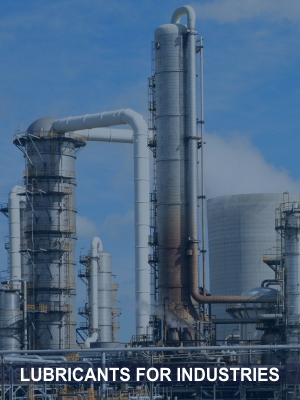Cement Industries
In the cement industry, lubrication plays a crucial role in maintaining the efficiency and reliability of various machinery and equipment involved in the manufacturing process. The harsh operating conditions, such as high temperatures, heavy loads, and dusty environments, require specialized lubricants to ensure optimal performance and longevity of the equipment. Here are some common types of lubricants used in the cement industry:
Greases: Greases are commonly used in the cement industry due to their ability to adhere to surfaces and provide long-lasting lubrication. High-temperature greases are particularly important for applications where equipment operates at elevated temperatures, such as kilns and mills.
Open Gear Lubricants: Open gears are prevalent in cement mills and rotary kilns. Open gear lubricants are designed to adhere to the gear surfaces, providing protection against wear, friction, and corrosion. These lubricants often come in semi-fluid or sprayable formulations for easy application.
Hydraulic Oils: Hydraulic systems are widely used in cement plants to control various processes. Hydraulic oils are essential for the proper functioning of hydraulic systems, providing lubrication and ensuring the efficient transmission of power.
Gear Oils: Gear oils are utilized in enclosed gear systems, such as those found in gearboxes and drives. These oils offer protection against wear, corrosion, and extreme pressure, maintaining the performance and reliability of the gears.
Compressor Oils: Air compressors are commonly used in cement plants for various applications, including conveying materials and operating pneumatic equipment. Compressor oils are designed to handle the unique challenges of these systems, including high temperatures and heavy loads.
Circulating Oils: Circulating oils are used in circulating systems, such as those found in pumps and other rotating equipment. They provide lubrication and cooling to the components, ensuring smooth operation.
When selecting lubricants for the cement industry, it's crucial to consider factors such as temperature, load, speed, and the specific requirements of each application. Regular maintenance and monitoring of lubricant condition are also essential to prevent equipment failures and downtime. Additionally, working closely with lubricant suppliers and following the equipment manufacturer's recommendations can help ensure the proper selection and application of lubricants in the cement industry.
Technical Data Sheet
GRAFALMOL M-00
CALCIPLUS-100
LITHEXPLUS EP -S
OGCPLUS-5000
SHBG-2260
SYF/930 SYNTHETIC HYDRAULIC FLUID


